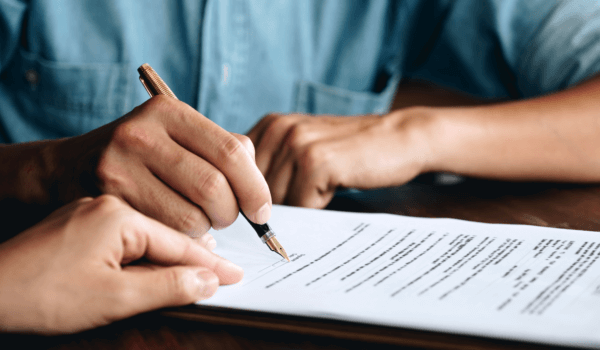
The COVID-19 pandemic has brought unprecedented change in the way many people go about their daily lives and work. While many employers have made decisions to keep their teams working remotely indefinitely, others have decided to return to the office, whether partially or full time. Because of this, COVID-19 liability waivers have become a common concern for both employers and employees alike. However, the enforceability of such waivers has also been brought into question. Knowing just how a liability waiver works, and whether or not it can be used in relation to COVID-19 is important when considering returning to the workplace.
COVID-19 Liability Waivers
A liability waiver is essentially a legal document a person who participates in an activity or job signs acknowledging the risks involved in their participation. In doing so, the waiver drafter attempts to avoid liability should things go awry. Liability waivers are often used in situations with a good amount of risk, including parachuting, skydiving, full contact sports, when entering into a dangerous zone or workplace, or when handling hazardous or toxic materials.
Now, however, businesses and event planners are utilizing COVID-19 liability waivers to protect themselves should an employee or attendee contract the virus and sue them for damages. When used properly, liability waivers can be an effective means of minimizing the risks arising from certain activities; however, there are several issues associated with COVID-19 specific waivers, including whether or not an employer can enforce them at all.
The Enforceability of COVID-19 Liability Waivers
While liability waivers are common for seemingly dangerous situations, the COVID-19 pandemic has proved to be much more than just dangerous. Since the risks of contracting the virus are not fully understood and extend to everyone who comes near an infected person for days after, the enforceability of coronavirus liability waivers remains debatable.
While state law governs the enforceability of liability waivers, each state has different regulations with regard to how they are used. COVID-19 waivers are more likely to be enforced if they are conspicuous, clearly identify the claims being waived, and contain the language required by applicable state law. Texas law does not spell out exactly what needs to be contained in a liability waiver in order to make it enforceable; however, various appellate courts have interpreted specific waivers and commented on their effectiveness.
For instance, in Texas, an adult’s pre-event liability waiver may be enforceable if the waiver is express and conspicuous. A waiver is express when it explicitly states that the person signing it intends to and does release another party from any claims of negligence. A waiver is conspicuous when it is not hidden, but eye-catching due to a combination of a clear heading, and noticeable differences in font size, type size, and/or color in relation to surrounding text.
In Texas, a waiver of liability will not be enforced against anyone for damages that arise from intentional misconduct or gross negligence. Pre-event liability waivers are also generally unenforceable against employees in the Lone Star State. Because COVID-19 is still a new virus that will continue to be examined for years to come, the overall enforceability of pandemic-related waivers remains to be seen. A pre-event liability waiver, however, could be proactive in protecting businesses from potential liability for COVID-19 related negligence claims in the workplace.
Despite the debate over the enforceability of coronavirus liability waivers against employees, the contracts could be effective at protecting entities against claims by clients, customers, vendors, and others who come into contact with the business. This is especially true when considering indemnification provisions, policies, and procedures designed to prevent the transmission of COVID-19. Businesses considering using waivers should be mindful of the associated risks, as they have the potential to harm a business’ reputation.
Houston Contract Drafting Attorneys
As the COVID-19 pandemic continues, it is likely employers will continue to search for the best means of limiting their business’ liability exposure. While the enforceability of COVID-19 liability waivers remains to be seen, it’s incredibly important for business owners to protect themselves and ensure the safety of their staff when considering returning to the workplace. At Feldman & Feldman, we understand just how unprecedented these times are for employers and employees alike. If your business needs liability waivers or other contractual documents drafted, contact us today to schedule a consultation.
